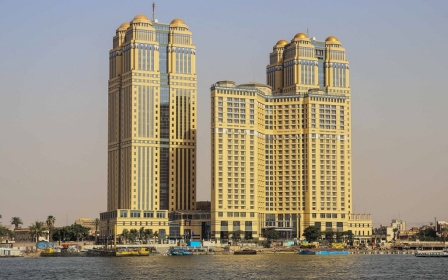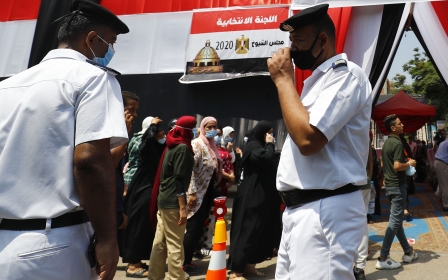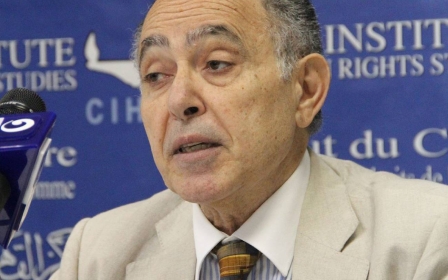Egypt targets rape witnesses in attempt to bury case that shocked the nation
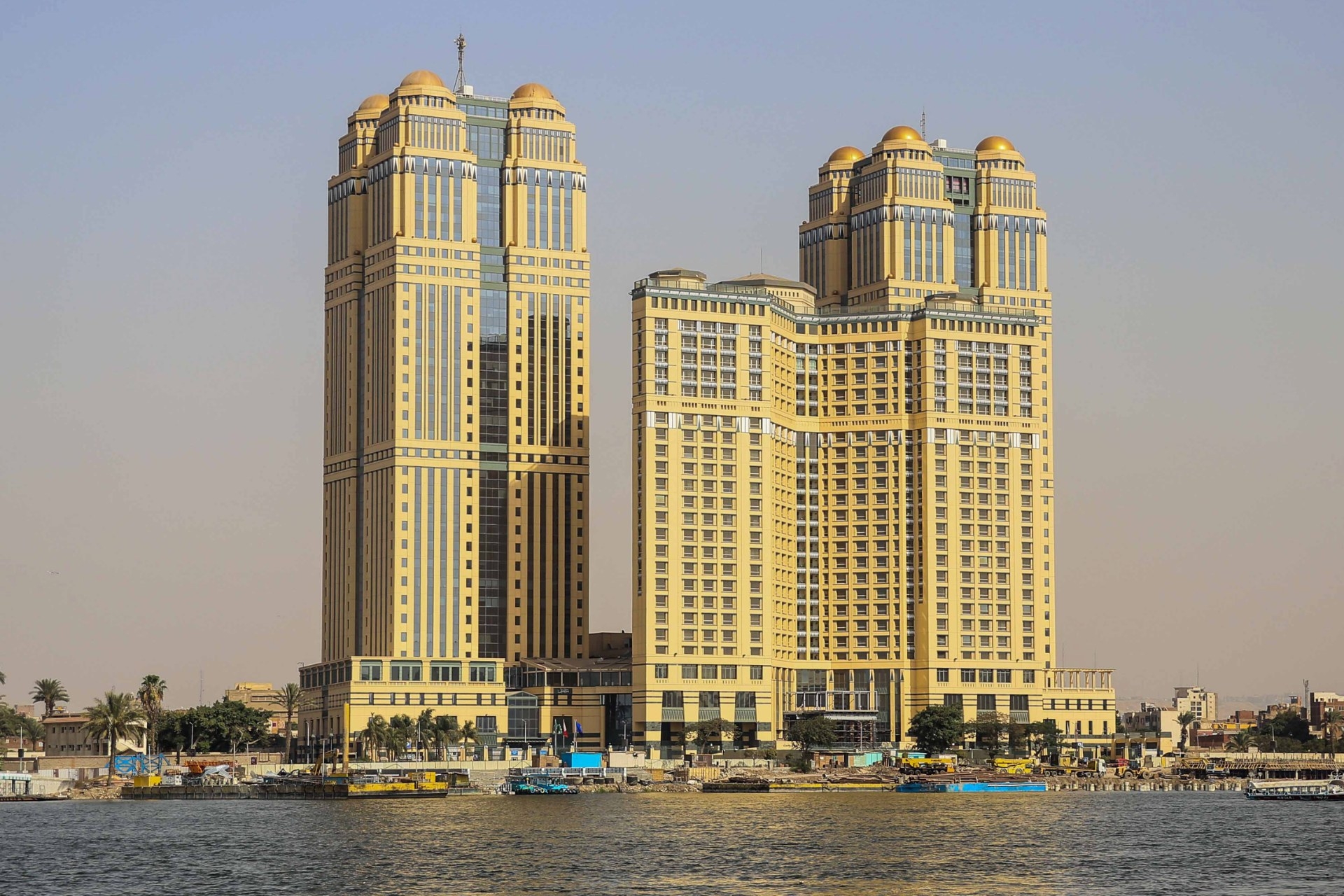
Despite promises of justice and assurances of anonymity, Egyptian authorities are pursuing the prosecution of several witnesses in a high-profile gang rape case, accusing them of working to damage the country’s image.
Six arrests over recent days have dismayed women's rights defenders, and ended hopes that the Egyptian state was genuine in its vows to tackle endemic sexual assault and protect its victims.
The 2014 Fairmont Nile City hotel gang rape case, in which a group of at least nine men allegedly raped an 18-year-old woman during a party, then used a video of the incident to blackmail her into silence, has been headline news in Egypt since allegations surfaced on social media in July.
Accusations were levelled at a number of wealthy young men by users urging the authorities to hold the perpetrators accountable, as an anti-sexual assault movement labelled “Egypt’s MeToo” gathered momentum.
By early August, the state-run National Council for Women (NCW) called on witnesses to testify against the alleged perpetrators and to speak up in front of the prosecution, ensuring “full confidentiality” for the survivors, with the purpose of “protecting their reputation”.
However, as the public prosecution took over the case, several witnesses and a campaigner were arrested after testifying, according to their lawyers and families.
The lawyers said their clients were illegally arrested without the prosecution’s permission, were held in an unknown location and denied legal representation during interrogations.
Over the past week, seven people have been arrested around the case, three of which remain in detention.
Just one of those seven is an alleged rapist. The rest are witnesses, activists and even people tenuously related to the case. All six of those have been ordered to undergo drug tests and have their phones confiscated for inspection.
Smear campaign
In the days that followed their arrest, the detained have been subjected to a prominent smear campaign across the country’s media.
Two of their lawyers described the campaign to MEE as an attempt by the alleged rapists’ legal team to paint the victim as scandalous and portray the 2014 incident as a consensual sexual act among homosexual and group sex activities.
Several newspapers and websites known for their close ties with the Egyptian security apparatus cited anonymous official sources claiming that the 2014 Fairmont party included a “group sex party and acts of homosexuality”. Some websites published personal explicit pictures of the witnesses.
A source in the public prosecution told Middle East Eye that the defendants are facing charges including “drug abuse, inciting debauchery, inciting homosexuality and lesbianism, and making up fake allegations on social media to promote false cases of violence against women”.
The source added: “The rhetoric that the prosecution is biased toward the alleged rapists is false. If they are found guilty, they will be prosecuted accordingly.”
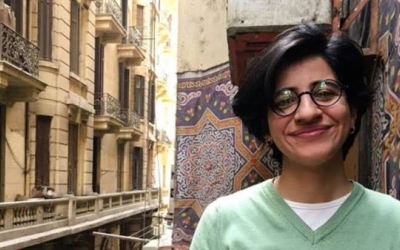
A lawyer of one detained witness told MEE on condition of anonymity that personal and explicit sex videos leaked from the phones of his client were leaked and distributed to journalists and social media users, to “distort the reputation of the clients and to undermine the victim’s claims”.
“If the prosecution becomes convinced that the party was attended by homosexuals and included orgies, they might end up accusing the victim of debauchery and practising homosexuality,” the lawyer added.
Homosexuality is illegal in Egypt and members of the LGBT community are often victimised and face jail time under the crime of “practising and spreading debauchery”. In the sensationalist Egyptian press, members of the LGBT community are often portrayed as undisciplined, spoiled, rich individuals or perverts.
One detainee, 21-year-old Seif Bedour, had nothing to do with the Fairmont case and was just visiting his witness friend when they were seized and taken to a police station, his family told MEE.
Bedour is now facing charges of drug use and “homosexual debauchery”, despite his family insisting there is no evidence to support the accusations.
A source in the justice ministry’s forensic medicine department said some witnesses may undergo “anal tests” to determine if they are “habitual homosexuals or not”, a humiliating and unscientific process condemned by rights groups as a form of torture.
MEE has learned that one female detainee has been made to have a “virginity test”.
Leaked videos
One arrested witness, Nazli Mahmoud, is facing the charge of damaging the reputation of Egypt by highlighting the rape case, in addition to “practising lesbianism”, according to her lawyer.
Explicit videos of Mahmoud have been circulated on pornography websites by recently made accounts. Mahmoud’s lawyer accused her former husband, who is a suspect in the rape case, “of leaking the footage to slur her and undermine the claims of sexual violence”.
'Now, no woman, no matter how hard she was violated, will dare go the authorities knowing she might be slurred and even be charged with debauchery'
- 'Assault Police' campaigner
Another detainee is renowned events planner and hotel owner Ahmed al-Ganzoury, who was arrested last week from his house, his family told MEE. Ganzoury, a known figure in the party and concert-planning scene of Egypt’s upper class, is the organiser of the Fairmont party where the rape allegedly took place.
“He was kidnapped and we have not been able to provide him with legal assistance nor [coronavirus] face masks and sanitisers,” a relative said, adding that the smear campaign targeting Ganzoury aims “to slur the whole party and its guests”.
Similarly, personal explicit pictures of Ganzoury were leaked, a step the family thinks took place after he handed over his phone to be inspected by the police. “They are trying to erase the narrative that a specific crime took place, and want Ahmed to be a scapegoat for everything,” the relative said.
The family told MEE that the Fairmont event described in the media as a “group sex party” was attended by several off-duty officials, wealthy and known businessmen, and actors. They added that these parties are usually sponsored by corporate companies and are filmed for publicity.
Broken promises
According to three lawyers who are representing different witnesses, the National Council for Women (NCW), a state-backed regulatory and advisory body vocally supportive of the government, promised total secrecy and protection of witnesses and victims.
The NCW’s pledge came as Egypt has been rocked by a mass movement online targeting widespread sexual abuse suffered by women in the country. Known as Egypt’s MeToo, the movement was sparked by the exposure of a number of sexual assault claims against Ahmad Basam Zaki, a 22-year-old Egyptian man whose alleged crimes were documented by the “Assault Police” online campaign group.
As well as state institutions’ pledges of anonymity for those coming forward, as sexual assault can cause social stigma for its victims, parliament has given preliminary approval to a bill that would enshrine the right to remain anonymous in law.
The subsequent arrests and smear campaign against the witnesses has, however, stirred anger towards the NCW, with hundreds on social media accusing it of betraying the confidence of women it asked to testify, demanding that its head Maya Morsi resign.
“Any woman who enters the battle of speaking up about sexual harassment/rape knows the consequences. But after the successful campaign against the serial harasser and rapist Ahmed Zaki, we thought the government is on this side,” an Assault Police campaigner told MEE, speaking on condition of anonymity.
“Now, no woman, no matter how badly she was violated, will dare go to the authorities knowing she might be slurred and even be charged with debauchery,” the campaigner said, adding that several social media accounts and online solidarity and discussion groups will now shut down in order to avoid state reprisals.
Another activist who is close to “Gang Rapists of Cairo”, an anonymous Instagram account that has led the campaign to expose the 2014 alleged assault, told MEE: “Egypt took a very clear-cut rape case, with literal photo and video evidence, and turned it into a case about homosexuality and orgies, and victim blaming.”
The activist said it had been wrong to assume the parliament’s preliminary approval of a bill proposing “full confidentiality” for survivors of sexual assault and harassment showed progress.
'We were so naive to think that Egypt, which orders virginity tests on female protesters and jails young TikTok performers, will stand up for women’s rights'
- Activist
“We were so naive to think that Egypt, which orders virginity tests on female protesters and jails young TikTok performers, will stand up for women’s rights,” they said.
In the end, for Egyptian authorities, the reputation of the country may trump any concern for women’s wellbeing.
Mohammed al-Ghoul, a member of parliament's human rights committee, told MEE that he had no doubt that the prosecution will stand up for the rights of the violated woman.
But, he added, “we should not believe all information that is spread on social media, as some of it is tackled in a sensational manner and can be used to spread negative news about the country by enemies”.
And the issue has quickly become a topic Egyptian state-run media is linking to the country’s exiled opposition.
The hypernationalist Al-Gomhoryia newspaper accused the son of former presidential candidate Ayman Nour, Shady, of participating in a “campaign against state institutions” by accusing authorities of trying to cover up the case.
This article is available in French on Middle East Eye French edition.
Middle East Eye delivers independent and unrivalled coverage and analysis of the Middle East, North Africa and beyond. To learn more about republishing this content and the associated fees, please fill out this form. More about MEE can be found here.




